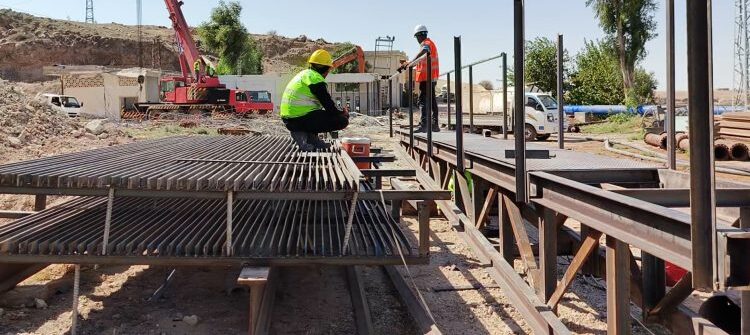DEIR EZ-ZOR, Syria (North Press) – The eastern Syrian city of Deir ez-Zor is witnessing a major step toward ending its years-long water crisis with the launch of a large-scale project to rehabilitate the Euphrates Water Station, one of the region’s most vital infrastructure facilities. The initiative is being implemented in cooperation with UNICEF.
The project aims to ease the suffering of hundreds of thousands of residents who have long endured chronic water shortages and frequent cuts across the governorate.
Residents resort to individual solutions
In neighborhoods such as al-Bughayliyah, prolonged outages—sometimes lasting up to ten consecutive days—have forced residents to find alternative ways to secure water.
Ayman Ahmad Shahada, a resident of al-Bughayliyah, told North Press that many families have installed private pipelines stretching up to five kilometers at their own expense to reach sources near the Euphrates Water Station.
While these efforts provide temporary relief, Shahada warned that random connections have increased pressure on the public network, urging authorities to regulate extensions and conduct regular maintenance.
Station to serve half a million residents
Ahmad al-Mousa, Director-General of the Public Water and Sanitation Authority of the Syrian transitional government in Deir ez-Zor, said the rehabilitation project will provide clean water to about 500,000 residents, from Ayyash in the west to Jaffra in the east.
He noted that around 80 percent of the station’s equipment was destroyed during the war, particularly during battles against the Islamic State (ISIS). The facility will be revived with four new pumping units, each equipped with a 200-kilowatt motor capable of pumping 900 cubic meters per hour, giving the station a daily production capacity of 60,000 cubic meters.
Engineers emphasized that ensuring water quality is a top priority. The purification process includes sedimentation, filtration, and chemical treatment, with activated carbon used to remove odors and other chemicals added to maintain proper pH levels and reduce heavy metals. The project is expected to be completed within four months.
Modern monitoring technologies
Amer al-Naji, Director of the Euphrates Water Station, said UNICEF support has enabled the installation of advanced laboratory equipment to monitor key quality indicators such as chlorine levels, turbidity, and hardness.
He added that the introduction of the SCADA (Supervisory Control and Data Acquisition) system allows remote control of pumps and equipment, enabling real-time monitoring and reducing manual intervention.
Once operational, the station will pump about 2,700 cubic meters of water per hour, supplying all neighborhoods of Deir ez-Zor and its surrounding countryside.
Al-Mousa added that al-Masrab village, which has been without water for more than 16 years, will begin receiving supply within 20 days, once installations are complete.

